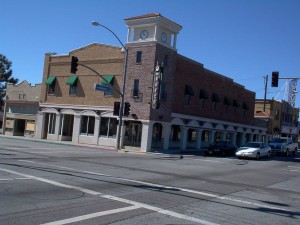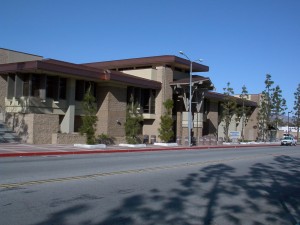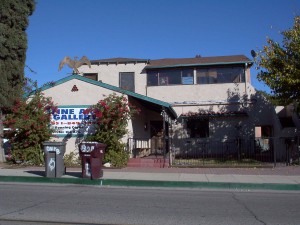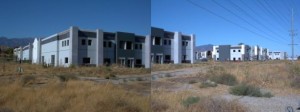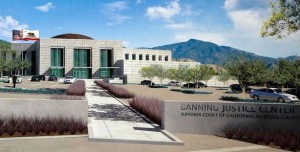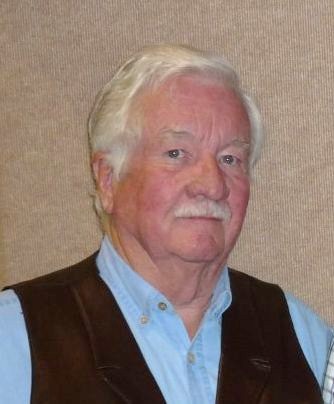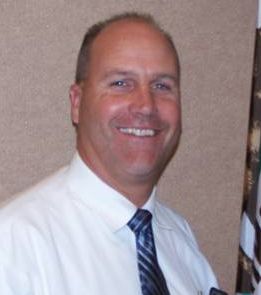
Councilman Ed Miller
.
Council Meeting Of January 26, 2016
The Council agenda was light this week, with the items primarily bookkeeping cleanup.
1. When redevelopment agencies of cities in California were dissolved by the State, there were still projects not completed and funds involved which were not expended. The State permitted these projects and associated funding to be continued under a new agency (the successor agency). The financial report of the financial position within this agency has to be reported to the State periodically, and the Council approved the latest financial report.
2. There are still $8,106,025 dollars available from bond proceeds from the tax allocation bonds from the dissolved redevelopment agency that was transferred to the successor agency. These funds must be spent on improvements within the arras specified in the bond prospectus (Ramsey Street and other downtown areas). These funds were transferred to the city to expedite the appropriate use of these funds
3. Landscape Disrict1 has a fee for maintenance by the city of its streets, parkways, media backup walls, drains and flood control. The fee is determined by the cost of these services. The Council approved that the Public Works director will prepare a report determining the cost of these services, and the fee will be established to cover those costs for the year.
4. The corporate yard is under construction. Some modifications have been made, and an additional $12,802 was approved for the engineering firm designing the project to cover this additional work. The construction contractor will provide $7,052.50 of that amount, so the actual additional cost to the city will be $5749.50.
Ed Miller
Banning City Council
Council Meeting Of January 12, 2016
A grant to the Banning Police Department for $10,000 from the year 2016 Supplemental Law Enforcement Services Allocation was approved. This grant is given directly to the City, and no City funds are required. The grant funds will be used to:
1. Begin evaluating body cameras for police officers to wear while on duty.
2. Upgrade the system which permits patrol vehicles to wirelessly download their video of operations.
3. Improve the data and evidence storage systems of the department.
The Council approved $23,010 to improve the equipment for the State 911Emergency system. These funds will be reimbursed later by the State 911 Emergency Communication Branch for the full amount.
Our city Attorney Lona Laymon has resigned, and interviews were held with applicants for the position. Anthony R. Taylor was approved as the Banning City Attorney. He is a partner in the same law firm as Ms. Laymon.
The Banning Business Center at 649 W. Lincoln Street has not been properly maintained, weeds have not been removed, windows not boarded up, homeless people have been living there, and several dangerous fires have occurred in that location. The Center was repurchased as separate parcels by three different owners, and it has been impossible to get sufficient monitoring of the property. The Council approved starting negotiations to place the Center into receivership, which is the first step to require better code enforcement or demolishing the Center.
Any large project requires an Environmental Impact Report (EIR). The developer of the project is required to pay for this report. The City is involved, as the City is the lead agency with the contractor preparing the report. The City approved the expenditure by the developer of the Rancho San Gorgonio project of an additional $17,320 for this report However, no City funds are involved.
The City is required by the FAA to submit a five year plan of proposed improvements to the airport. The Council approved the plan, which is tentative. Any such improvements will be largely funded by grants from the FAA, and no City funds are involved at this time.
Ed Miller
Banning City Council
.
Council meeting of December 8, 2015
The Mayor for the next year was appointed by the Council. Don Peterson and Art Welch were nominated. Art Welch was elected by a vote of 3-2 . Council members Welch, Franklin and Moyer voted yes, Council members Miller and Peterson voted no.
The contract for Rachel Clayton as our new Administrative Services Director/Deputy City Manager was approved by the Council. The City Manager introduced her and summarized her background. She will begin to work for our city in several weeks.
All Redevelopment Agencies were dissolved by the State several years ago, and it is the responsibility of the city to complete all transactions started by the Agency as quickly as possible. The council approved payment of the remaining balance, and acquiring complete title to the property at 128 N. San Gorgonio Ave (initiated by the Redevelopment Agency). Similarly, the property at 60 E. Ramsey, with title under the Redevelopment Agency was transferred to the City.
The Redevelopment Agency had the authority to issue bonds, and issued bonds based upon the future taxes to be collected on areas under the control of the Agency. There are still funds available from these bonds, which must be used for projects related to redevelopment or improvement of our city. $8,367,000 still remains. $2,500,000 has already been allocated for improvements in Roosevelt Williams Park, and $2,000,000 to improve the Ramsey St. – Hargrave St. intersection. The remaining $3,867,000 was approved by the Council for installation of new 12 inch water mains along Ramsey St. from Sunset Ave to Highland Home Road ($1,357,000), and improvements of the median and curbs in the same area, and a left turn pocket at the Ramsey St. – Omar St. intersection ($2,500,000). There was discussion as to whether the latter was the best use of the funds, and the City Attorney was directed to add language that would permit future discussion and possible change of this item.
On Feb 29, 2006 the City Council passed an ordinance regarding the amount of area a building could occupy on a lot. A note was intended to be part of that ordinance, but not included. The note reads:
Up to 240 square feet of a car garage space is exempted from the total coverage for lots over 9,500 square feet. The council approved this addition to that ordinance.
An ordinance regarding electronic billboards was sent back for further review by the staff.
In accordance with new State regulations, the Council approved an increase of the maximum prize permitted at Bingo to $500, and increased the amount to be utilized for purposes other than prizes to $20%.
The Council approved the submission to the Riverside County Economic Development Agency (EDA) of a application for a grant to improve funds for renovations at the Community/Senior Center for new gym flooring, ADA approved restroom changes and other restroom improvements, doorway improvements, new lighting and other improvements.
The Council approved $16,000 for the fiscal year for legal advice in incidents involving “Use of Force” by our Police Department. These funds will not be expended if no legal action is required.
The council approved $52,000 for 18 months to the firm of Lynn Merrill to assist the city in satisfying all the Local, State, and Federal requirements for industrial waste control.
Ed Miller
Banning City Council
.
Council meeting of November 10, 2015
Chief Alex Diaz was confirmed as the acting Interim City Manager. The Council had hired a recruiting consultant to assist in obtaining a new permanent City Manager. The consulting firm received over sixty applicants, and recommended the top five for interview by the council. The interviews were held, and the Council selected Michael Rock to be our new permanent City Manager. Background checks are being performed, but assuming these will be positive , Mr. Rock was hired at a salary of $190,000 per year (the previous permanent city manager had a salary of $235,000 per year). He will start on November 12.
A contract for $25,700 was approved for yearly landscape maintenance of the areas around City Hall, the Police Station, the Fire Station, the Community Center, the Aquatic Center and the median on Ramsey street from Highland Springs to Highland Home Road.
The purchase of a new street sweeper for $300,618 was approved. The city streets have not been able to be swept since the old one broke nearly two years ago. This new one operates on compressed natural gas, producing significantly less pollution, and therefore the cost was covered by a grant from the Mobile Source Air Reduction Committee of the Air Quality Control District.
The funds from a community Development Block Grant were allocated to Lions Park to produce accessibility to Lions Park ($173,818) and the Teen Town Program of the Boys and Girls Club ($5000).
Electric utility rates are dependent on number of factors. The increase in home solar energy units, the increasing use of electric cars, the increase in our purchase of renewable energy ,and changes in usage require the Banning Electric Utility to reexamine the rate structure for electric charges. The last such analysis was performed eight years ago. A consulting firm was approved to perform such an analysis at a cost of $57,000. The results of this study will be presented in a workshop to the Council and city.
The city is part of a group of cities and power agencies that had previously entered into an agreement to purchase power from a future solar energy project. This would help the city satisfy the State requirement of having a larger percentage of its energy coming from renewable energy sources. The agreement was modified to give the lender for the project more control in case of a bankruptcy by the builder. In return, the city’s cost for the power will be reduced by approximately $460,000 over the term of our power purchase agreement.
An electric vehicle charging station has been built by our Electric Utility in the McDonald’s parking lot (at the McDonald restaurant near 22nd street). The owner had donated two parking spaces for this unit. The system should be in operation shortly, and a rate for electric usage was approved as:
$. 0168/kwh for Banning Residents
$ 0.276/kwh for non-residents.
These will be temporary rates until the comprehensive rate study is completed
Ed Miller
Banning City Council
Council meeting of October 27 ,2015
Interim City Manager Dean Martin resigned suddenly on October 20, and the Assistant City Manager/Police Chief Alex Diaz had become the interim City Manager at that time. Chief Diaz was officially appointed Acting City Manager until a permanent manager is appointed. This is expected in the near future.
Currently there are two senior engineering positions vacant in the public works department. Personnel is needed to review technical reports, evaluate and manage design project and capital improvement projects. A contract was approved with the Charles Abbot Associates to provide these services. The contract was for $125,000 for the remainder of this fiscal year, and the option to renew it at $175,000 per year for the following three complete fiscal years.
Although we seem far from the Santa Ana river, we are in the watershed management zone of the supply area for that zone. The Council approved joining that watershed Monitoring Program Task Force. Our city’s share of the expenses of that organization is $13,924.
Every five years the State requires our city (which owns its own water supply company) to submit an analysis to evaluate the adequacy and reliability of the water supply for all our present and future customers. A contract for $73,000 was approved for this study.
California (the only State so far) has lowered the acceptable level of hexavalent chromium (Cr 6) from the Federal level of 100 ppb (parts per billion) to 10 ppb. That level is equivalent to two teaspoons in an Olympic size swimming pool. There has been some confusion as a result of the change in standards. The amount of Cr 6 in our wells has not changed, only the standard.
Seven of our twenty four (24) wells have Cr 6 levels of approximately 15-25 ppb, still well below the Federal requirements, but above the legal levels by California standards . For comparison, the level of Cr 6 in the city of Hinkley, that made this contaminant famous in the movie about it (Erin Brokovic), had a level of the order of 400 ppb.
The contract for $73,000 was awarded to the Hazen and Sawyer company to evaluate our well system and develop a plan as to how to lower the Cr 6 levels to below the State requirements.
The purity of our drinking water has been evaluated by the E. S. Babcock company For the past several years. The contract for the next year for this analysis was approved for $65,000.
Comment: while we simply accept that healthy water is flowing from our faucets, these last items indicate only part of the efforts involved in keeping that water flowing and free from bacteria and other harmful elements.
Ed Miller
Banning City Council
.
Council meeting of October 13 ,2015
The Council approved an $8,000 contract with the HDL Company to prepare a report on the economic benefit to the city of the Village at el Paseo project. No bids were requested from other companies for this analysis, and whether this project is an appropriate use of Redevelopment funds was not analyzed. The report said that some aspects of the project needed be changed : the restaurant should be changed from a formal restaurant to a fast-casual one , and the two story mixed retail- office building should be changed to a single story building.
After approving payment of this analysis, the Village at el Paso project was officially approved to be turned over to the Vanir corporation with no changes except the starting dates for the project. The building to house the Probation office and the District Attorney’s office will start no later than December 15. The second phase will start no later than April 1, 2016, the third phase by January 1, 2017 and the last phase by December 1, 2017. The vote for approval was 3-1, with Council members Franklin, Welch and Moyer voting yes and Miller voting no.
The Council approved the first step in the process of refinancing at a lower interest rate the city’s $400,000 in redevelopment bonds (tax allocation bonds). The total saving to the city will depend on the interest rate obtainable. As with the other refinancing of the city’s bonds, if no savings can be made, there will be no cost to the city.
The Interim City Manager had been hired from a temporary agency until a permanent City Manager can be hired. Interviews with applicants for the permanent position will be held on October 28. The Council was asked to approve $20,000 in additional payment to the Interim City Manager because his payment from the temporary agency was below that specified for the position, despite the fact that the payment of the city to the temporary agency was higher than that amount. Several Council members said that the contract was with the temporary agency, and not with the Interim City Manager, and therefore did not concern the city. The additional payment was rejected 4-1 with Council member Welch voting to pay the amount.
A contract for $368,000 was approved to start construction at Lions park to provide required improvements to permit handicapped access to the park’s facilities.
Ed Miller
Banning City Council
.
.
Council meeting of September 22 ,2015
The corrected minutes of the previous meeting were approved. The correction was the inclusion of the actual statements of the residents who objected to the extension of the time of the review of the Village at el Paso. The purpose of this extension was to give time for a new developer (Vanir Corporation) to take over the project. The previous version of the minutes gave only the names of the speakers, and did not even indicate that they were opposed to the project.
The agreement with the Police Management Association was approved
The City’s Bond underwriter responsible for the refinancing of the City’s Water and Electric bonds was changed. Rotation of the underwriter is a standard safeguard to assure constant review of the City’s actions in this type of matter.
The city’s policy of special rates for large electrical users (over 100kw demand) was continued as one of the efforts to attract commercial investment in Banning.
The Council approved support of The League of Cities political proposals that:
1. Group housing locations be not closer together than 300 feet. There was considerable discussion of this item, and it was proposed that Council member Moyer (the city’s representative to the League) attempt to increase that distance.
2. The League support SB593, which gives cities the ability to impose a transient occupancy tax on residential property which is used for such transient housing (less than 30 days). The proposed law does not affect long term rentals.
3. The League asks for legislation requiring Southern California Edison to reimburse it subscribers for electrical outages of 48 hours or more. Since Banning has its own electrical company, that would not apply to us. However, Fred Mason, Director of the Electrical Works said that our city already has a policy of reimbursement for damages due to outages, and claims can be submitted to the city for such damages (food damage, etc.).
Ed Miller
Banning City Council
Council meeting of September 8, 2015
The Council appointed Mr. Richard Krick to the Planning Commission by a 3-2 vote. Council members Welch, Franklin and Moyer were in favor, with Peterson and Miller opposed.
The minutes of the previous meeting were brought for discussion by Council member Miller. The minutes described in detail the comments of Council members and the comments of people at the meeting on all topics, except for the discussion of an extension of the review time for the Pearlman project (the project across from the courthouse). For that topic alone, only the names of the people talking were given, and the fact that they all opposed the project was hidden. Similarly, the strong comments of Council member Miller against the project were summarized in one vague sentence, which gave no indication that he spoke against the project. The contrast between the completeness of the minutes on all other agenda items and the brevity of the minutes on this issue is notable. After discussion, the Council requested the City Clerk to revise the minutes to include the comments of all who spoke.
The City Manager has the authority to grant contracts up to $25,000 without the approval of the Council. The City Manager presented a list of contracts he had approved during the last month for as-needed services such as plumbing, electrical, air-conditioning repair , and other services. The total cost of these contracts was $277,000. Councilman Peterson opened the discussion on the high total cost of these contracts. The City Manager stated that he is trying to get the staff to require bids for such contracts, and has gotten some of these from a bidding process. At the Council’s request, he will present information on how many of these contracts were the result of a bidding process at the next meeting.
The Council recognized Stagecoach Days as the signature event of our city, and approved $10,000 in cash and $10,000 in in-kind services (Police, etc.) to assist this event.
Our City Attorney Dave Aleshire informed the city that he was too busy to properly provide the services our city requires. The Council unanimously approved Lona Laymon of the same law firm as our new City Attorney. She had been the Attorney for our Planning Commission prior to this change.
The previous Council had approved $20,000 in the year 2013 for the initial cost of relocating existing utilities to permit the Sunset grade separation work to proceed. The exact final location and soil conditions were not known at that time. This Council approved an additional $16,000 to complete the work, now that the project is nearing completion, and the exact location for the utilities is known.
Improvements to the airport involving the replacement of four light poles that are currently too close to the runway and improved signs and markings were approved. An FAA grant of $127,000 will be applied to this work, and the city will provide $22,160. The staff will apply for transportation grants to cover most of that cost. There was considerable discussion as to the benefits and disadvantages of improving the airport. There have been several workshops on the future of the airport,. The airport could be a commercial advantage to Banning. However, the airport is not being well used and is subsidized by the city. Considerable tax revenue could accrue to the city if this area could be converted into a commercial zone. The problem with improving the airport is that if the airport is eventually closed and converted to other uses, all the funding provided by the FAA must be returned. The discussion as to the total overall benefit to Banning of keeping it as an airport, or searching for a developer, will continue.
The Council had been asked by the League of California Cities to approve their resolution concurring with a proposal by the State to improve roads and streets through increased vehicle registration fees and gasoline taxes. Instead of the above, the Council approved a resolution that city streets and highways need to be improved, but the Council is opposed to the State’s proposal of increasing fees and taxes to pay for these improvements.
Ed Miller
Banning City Council
Council meeting of July 14, 2015
The Council approved a study of the effect of the Pardee development North of the hospital on traffic patterns in the area, and means to improve traffic flow. The study will be paid for by the Pardee Corporation.
New job descriptions for part time employees were approved.
Animal control services are licensed from Beaumont. The cost is per each call. This cost has increased from $30 to $75 a call over the last five years. The total cost is estimated to be $170,000 for the year. This activity is under the direction of Police Chief Diaz, who will examine other possibilities for the future.
Two new buses were purchased to replace older ones. The cost for each bus is $444,000 for a total of $888,000.
Rental fees for airplane hangers at the airport were increased 5% this year, and 2% or the cost of living (which ever is higher ) for the next four years.
Fighting the Forest service for the flume water continues. A consulting firm was hired to assist in this effort at a cost of $82,000
The legal steps to abandon the city’s partial ownership of the San Juan power generating facility were approved. This plant is coal operated, and such plants have been under environmental attacks that have made them unprofitable for California users. The cost to the city’s electric utility will be $1,312,000. Yes, that is the correct figure.
To avoid possible legal complications, a Parking Authority was formed to replace the Successor Agency as the agent involved in floating new bonds.. The Successor agency was formed when the Redevelopment Agency and redevelopment funds were removed by the State. The successor Agency was designed to finish partially completed projects, and will be dissolved when these projects are completed. Therefore, the Parking Authority was chosen to be the agency under which bonds will be offered to reduce the interest rate on existing electric and water bonds, since this agency will continue to exist for the life of the bonds (unlike the Successor Agency). Concern was expressed by council member Peterson that forming another separate Agency lends itself to the possibility of shifting and hiding money from the public and hinders financial transparency, and suggested that the existing Housing Authority be used instead of adding a new one. The Council decided there was not enough time to change the documents considering the uncertainty in interest rates.
The complex legal documents needed to try to refinance the Electric Utility and Water Utility bonds at a more favorable rate were approved. The condition of the bond market at the time of issuance will determine if these bonds can be improved in rate.
A study is being performed to determine he proper rates for water and waste water usage. $9,750 was approved to complete the study.
Ed Miller
Banning City Council
Council Report for 6/23/15 : http://www.thebanninginformer.com/?page_id=8288
Council Report for 6/9/15 : http://www.thebanninginformer.com/?page_id=8276
Council Report for 5/26/15 : http://www.thebanninginformer.com/?page_id=8264




 If you would like to comment or discuss this – or any other – article, please visit us on FACEBOOK
If you would like to comment or discuss this – or any other – article, please visit us on FACEBOOK















